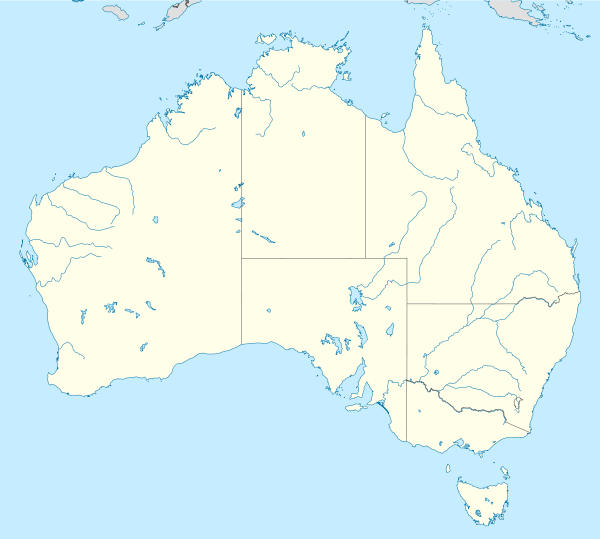Centennial Park Cemetery
 Location of cemetery | |
| Details | |
|---|---|
| Established | 1936 |
| Location | Adelaide, Pasadena |
| Country | Australia |
| Coordinates | 34°59′50″S 138°35′17″E / 34.9973°S 138.5881°E |
| Type | Public |
| Owned by | Jointly owned by cities of Mitcham and Unley |
| Size | 40.5 ha (100 acre) |
Centennial Park Cemetery is a large, 40.5 hectare (or 100 acre) cemetery in the southern Adelaide suburb of Pasadena, located at 34°59′50″S 138°35′17″E / 34.9973°S 138.5881°ECoordinates: 34°59′50″S 138°35′17″E / 34.9973°S 138.5881°E along Goodwood Road. It is the largest cemetery in the southern suburbs and one of the largest in the Adelaide metropolitan area. It was opened in June 1936, during South Australia's centennial year, although the first burial was not until 1938, when there were only ten in that year. It is jointly owned by the Cities of Mitcham and Unley, with a Board of Management that includes two serving councillors from each council.
The cemetery contains a war graves plot known locally as Adelaide War Cemetery, established by the Australian Army in 1942, holding the graves of 215 Commonwealth service personnel of World War II primarily from local hospitals. Most of the graves are either side of the central path from the Goodwood Road entrance. In 1946 the Commonwealth War Graves Commission took over the plot and erected a Cross of Sacrifice, the first erected by the commission in the Southern Hemisphere. Near the cross is the South Australia Cremation Memorial to 9 Australian service personnel who were cremated during the same war in the state of South Australia.[1]
In 1955, the W.A. Norman Chapel was opened and included one of the state's first crematoria (the first was opened at West Terrace Cemetery in the 1903). Since that time, the various crematoria have been upgraded and in 1983, three new cremators were constructed and considered a highly modern design at that time.
Notable interments or cremations
- Dr. George Duncan, Lecturer at Adelaide University whose murder precipitated homosexual law reform in South Australia
- Sir Donald Bradman, Australian Cricket Captain
- Cyril Chambers, South Australian federal MP
- Richard Kelvin, son of Rob Kelvin
- Raymond Leane, Australian army officer and Police Commissioner
- Robert Richards, 32nd Premier of South Australia
- Hermann Sasse, Lutheran theologian and author
- James Cyril Stobie, design engineer and inventor of the Stobie pole
- Crawford Vaughan, 27th Premier of South Australia
- Frank Walsh, 34th Premier of South Australia
- Mary Alice Ward, teacher and pastoralist
- Myrtle White, author
External links
- ↑ CWGC Cemetery report.